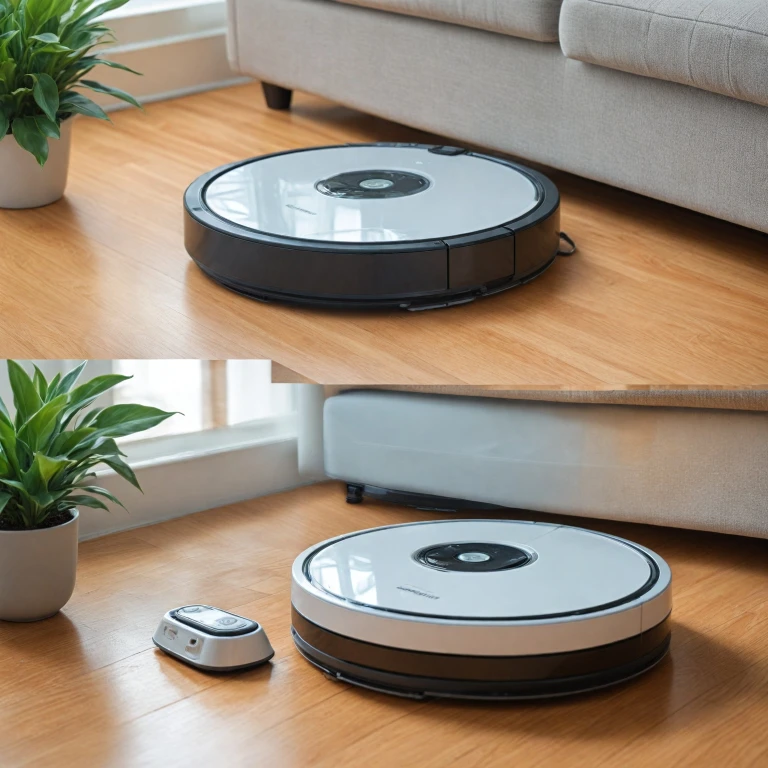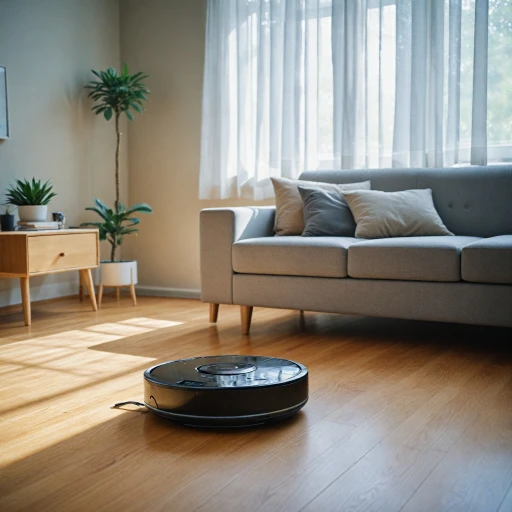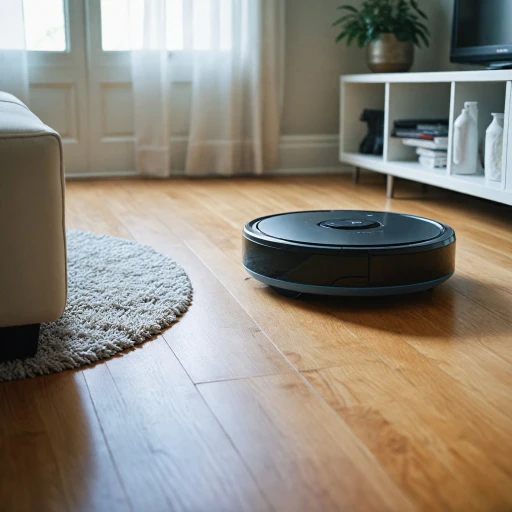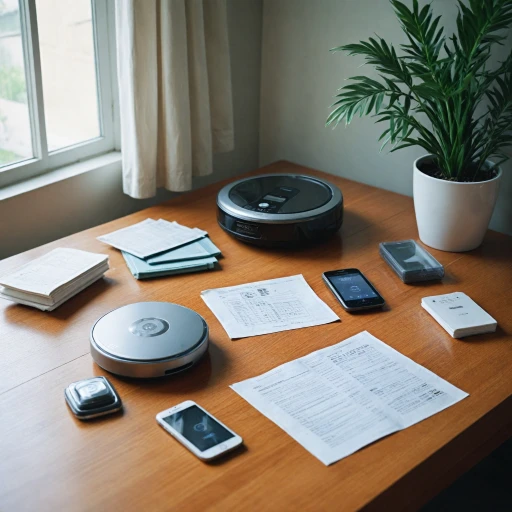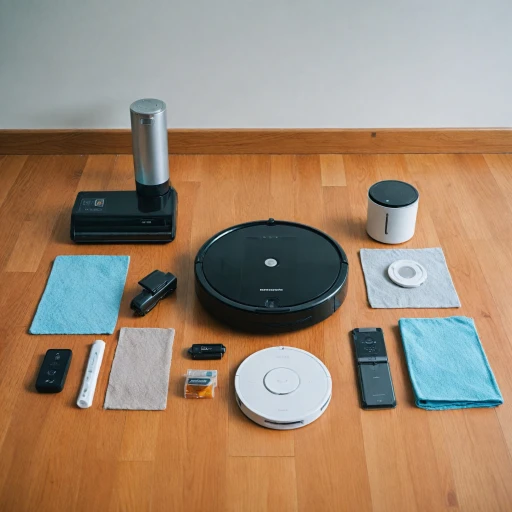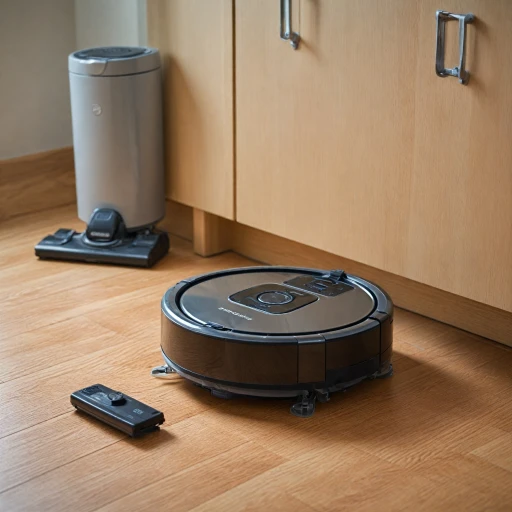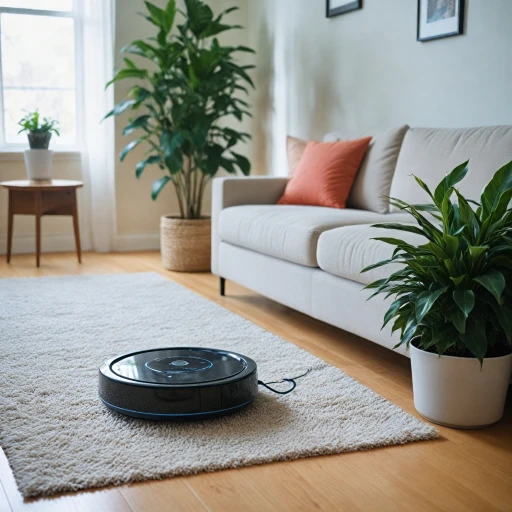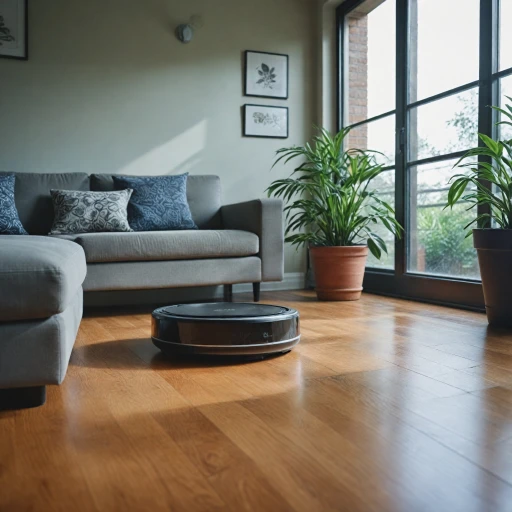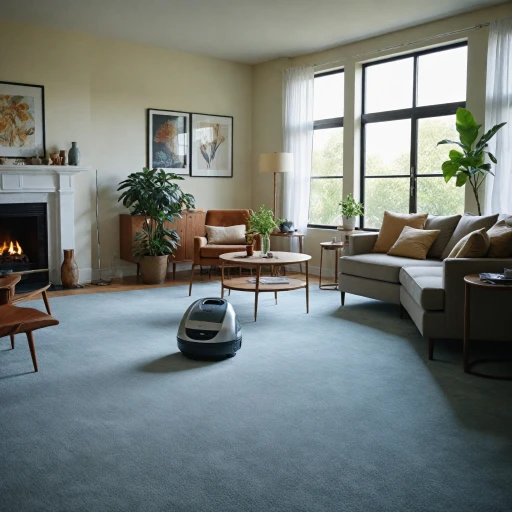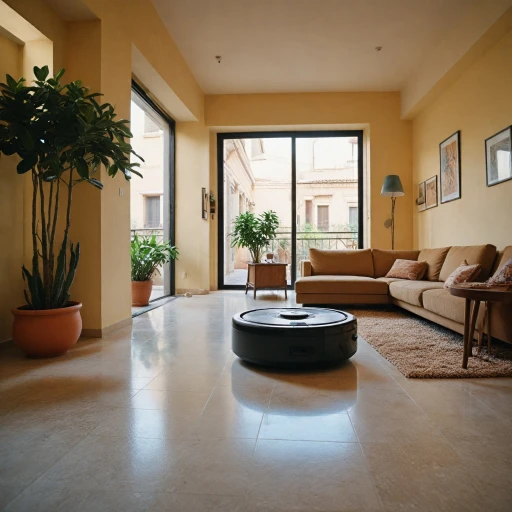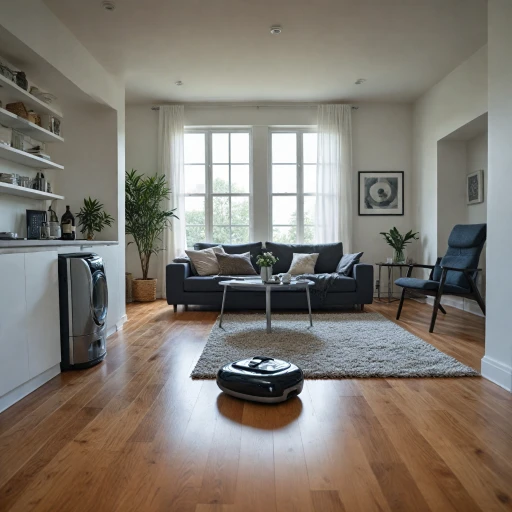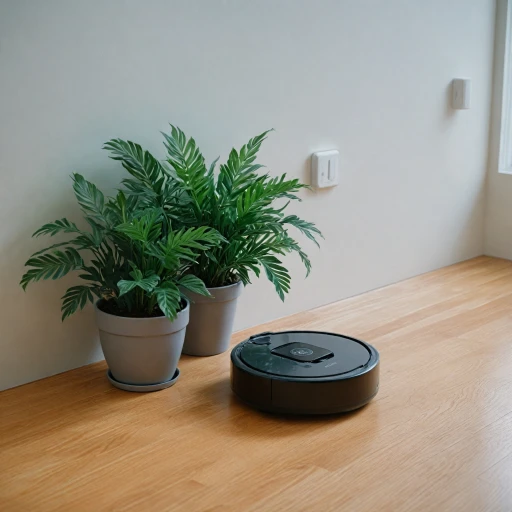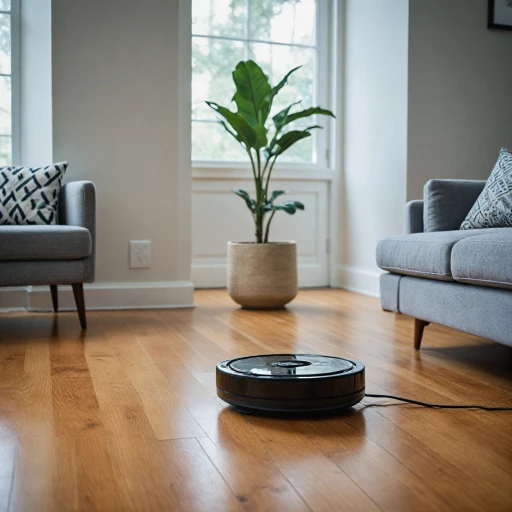
Understanding the key features of Roborock and Roomba
Distinguishing Features: Roborock and Roomba
When venturing into the world of robot vacuums, particularly between brands like Roborock and Roomba, understanding their key features is essential for making an informed choice. Let's delve into what sets these popular models apart. Roborock offers an impressive lineup focusing on versatile cleaning, often integrating vacuuming with mopping functionalities. Models like the Roborock MaxV Ultra aim to provide a comprehensive cleaning solution with its advanced navigation and obstacle avoidance systems. The Roborock Pro Ultra enhances this experience with superior suction power, ensuring efficient debris collection even on carpets. The inclusion of mop technology, with mop pads and water tanks such as in the Roborock Qrevo, allows it to tackle not only dust but also stains, making it a prominent choice for users seeking a vacuum mop combo. On the other hand, the iRobot Roomba series stands out for its innovative cleaning technology and ease of use. Known for their strong brand reputation, Roomba models often come with multiple cleaning modes and adaptive brushes that adjust to various floor types. The Roomba Combo, for example, combines both vacuuming and mopping, maximizing efficiency in maintaining clean surfaces. For both brands, navigation technology plays a crucial role in guiding the vacuum through spaces. While Roborock's MaxV technology focuses on precise mapping and obstacle recognition, iRobot's advanced sensors in models like the Roomba Pro ensure thorough coverage with smart route planning. These features not only improve-performance but also user satisfaction, as evident in numerous customer reviews and testimonials. Deciding between Roborock and Roomba typically involves considering factors like suction power, ease of maintenance, and unique characteristics like mopping capabilities. Both brands cater to various budgets and preferences, offering products across different price points, which will be discussed further in the following sections. For more insights on creative and fun names you can give to your Roomba and guidance on tailoring a personalized experience, explore this creative approach to naming your Roomba.Performance comparison: Suction power and cleaning efficiency
Assessing the Effectiveness of Roborock and Roomba
When delving into the performance of Roborock and Roomba, several factors underscore their efficiency.- Suction Power: Roborock models, notably the Roborock Max and Roborock MaxV, offer robust suction capabilities, crucial for thorough cleaning. The importance of suction power cannot be overstated, as it significantly enhances carpet cleaning and general dirt removal. On the other hand, iRobot Roomba, including the popular iRobot Roomba Combo, is lauded for its effective suction mechanics that excel in varying floor types.
- Mopping Features: For those particularly interested in mopping, the Roborock Pro Ultra and QRevo deliver notable features, including precise water distribution across the mop pad. This ensures efficient dirt lifting from floors, making them exceptional choices for homeowners seeking a combined vacuum-mop function. However, Roomba models focus more on vacuum efficiency, leaving some tasks to be managed manually.
- Cleaning Efficiency: Navigation technology plays a pivotal role in ensuring cleaning effectiveness in both brands. Roborock's MaxV Ultra boasts advanced obstacle avoidance, enabling it to tackle challenging environments. Meanwhile, Roomba’s models come with a side brush design and an effective navigation system synonymous with precision cleaning. Each brand incorporates technologies that enhance the robots' ability to maneuver around furniture and obstacles, thus optimizing coverage.
- Brush and Pad Design: The synergy of brush design with mopping capabilities substantially impacts cleaning performance. Roborock QRevo and other Roborock units emphasize multi-floor cleaning, incorporating a dual-function capability of a vacuum and mop. iRobot Roomba maintains a focus on precision with innovative brush systems that adapt to various surfaces.
Battery life and charging capabilities
Assessing Battery Life and Charging Efficiency
When evaluating robot vacuums, battery life is a crucial aspect that impacts overall performance and user satisfaction. Understanding how long a robot vacuum can run before it needs a recharge and how efficiently it charges can significantly influence your purchasing decision. For both the Roborock and Roomba models, battery life varies depending on the specific model. The Roborock QRevo and Pro Ultra series are known for their impressive battery endurance, often boasting life minutes that ensure prolonged cleaning sessions. This makes them ideal for larger spaces or homes with multiple rooms. Meanwhile, some Roomba models are designed to prioritize automatic return-to-base charging, ensuring they are always prepared for the next cleaning cycle. The charging capabilities also play an essential role. Advanced models such as the Roborock MaxV Ultra feature fast charging technology, allowing for minimal downtime. This is particularly beneficial for those requiring quick turnaround cleaning cycles. On the other hand, Roomba's smart navigation aids in efficient docking and recharging, a feature appreciated by users. In comparing Roborock and Roomba regarding battery performance, the selection would depend on needs related to cleaning area size and frequency. For more insights on battery efficiency in different models, you might want to look into exploring the capabilities of the Eufy X8 Pro which offers an alternative perspective with its smart battery management technology.User experience: Ease of use and maintenance
Navigating User Experience: Ease and Maintenance
When considering a robot vacuum, user experience is paramount. Both Roborock and Roomba have strived to provide easy operation while maintaining efficiency.
Roborock: Known for its high-quality navigation, Roborock integrates advanced obstacle avoidance and efficient cleaning patterns. The Roborock Max and Q7 models are equipped with multiple cleaning modes and are straightforward to operate. Users appreciate features like the intuitive interface and the ability to map out cleaning areas, proving advantageous for homes with intricate layouts. The mop pad and water tank are convenient for simultaneous mopping and vacuuming, though maintenance requires regular cleaning of the water pad to ensure optimal performance.
Roomba: Meanwhile, iRobot's Roomba models focus on ease of use with their smart navigation and one-click operation. The Roomba Combo series, including the iRobot Roomba Pro, offers automated dirt disposal and advanced suction for an effortless cleaning routine. Users have noted that the side brush and the removal of tangled fibers require occasional attention, and while this task can be a bit cumbersome, the overall ease of use remains high compared to many traditional cleaning methods.
Both Roborock and Roomba emphasize simplicity in maintenance. Roborock's innovative vacuum mop capabilities excel in maintaining hard floors and carpets with minimal intervention, requiring just the occasional replacement of mop pads and filters. The Roomba models often feature straightforward bin emptying processes, ensuring that upkeep is not burdensome while the iRobot’s customer service enhances the user experience.
In striking the balance between advanced technology and user-friendliness, both brands shine, yet they cater to slightly different aspects of user priorities. Whether you lean towards the comprehensive mopping capabilities of Roborock or the effortless dustbin management of Roomba, the choice will ultimately reflect your personal cleaning preferences and lifestyle needs.
Price and value for money
Evaluating Cost-Effectiveness: Striking the Perfect Balance
When choosing a robot vacuum, the price tag is often one of the pivotal considerations for consumers looking to make a practical investment. Both Roborock and Roomba have positioned their products across a broad price range, catering to different budgets and needs. Understanding the balance between cost and value is crucial when making a decision.
Here is a breakdown of what you can expect:
- Roborock models, such as the Roborock MaxV and Roborock Pro, are known for their advanced features and impressive cleaning capabilities, which might appeal to those looking for comprehensive solutions. The inclusion of a mop, advanced navigation, and superior suction power often comes with a mid-to-high range price.
- iRobot Roomba models, like the Roomba Combo, focus on reliable suction and obstacle avoidance features. These vacuums tend to offer a range from basic entry-level options to high-end models with more sophisticated features, each designed to accommodate various floor types, including carpets and hard floors.
The value for money should also take into account additional factors like battery life and charging capabilities. This aspect complements the cleaning efficiency, which we discussed earlier, ensuring that the vacuum can meet long-term needs without frequent interruptions or replacements.
While both brands offer notable value, your ultimate choice should be balanced with your specific cleaning routine needs and the size of the area to be cleaned. Aligning preferences with budget considerations will not only enhance your satisfaction but also optimize the lifetime cost of owning a robot vacuum.

